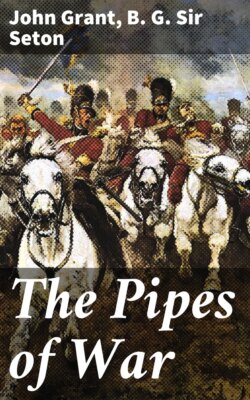Читать книгу The Pipes of War - John Grant - Страница 13
На сайте Литреса книга снята с продажи.
THE LAST STAGE
ОглавлениеTable of Contents
For four years and a half the pipes of war played their part in the greatest war in history; in the front, under conditions in which they could never have been expected to exist at all, they have led men to victory, have rallied them when victory eluded their grasp, and have marched them back undismayed by the tortures of battle; behind the lines they have headed the long columns of Scottish troops on their way up to the furnace in which the fate of nations was cast.
But, everywhere, they expressed the ideal of the race and led men to follow causes, even causes which appeared lost ones, through to the end.
When silence fell on the 11th November, 1918, along the blasted line where rival civilisations had so long struggled for mastery, the rôle of the pipes changed, and it was no longer the "onset" that the piper was impelled to play. The consummation of long effort had been attained—and what instrument more entitled to bear witness to the fact than the one which had sounded over the blood-stained slag-heaps of Loos, the shell-swept heights of Vimy?
As the British First Army entered Valenciennes, the pipers of a historic Scottish division played through the "place" opposite the Hotel de Ville, and must have awakened in the old gabled houses memories of the centuries old alliance between the Lilies of France and the Thistle.
Further east, along the roads that led to Cologne, the pipes played unceasingly, as befitted the occasion, impressing on the population that this was indeed the coming of "Scotland the Brave."
And so, over the great Rhine bridge, the pipes of the 9th and Canadian Divisions led the way, and Germany learnt at last that when piob mhor sounds "Gabhaidh sin an rathad mor"[5] it generally attains its objective.
